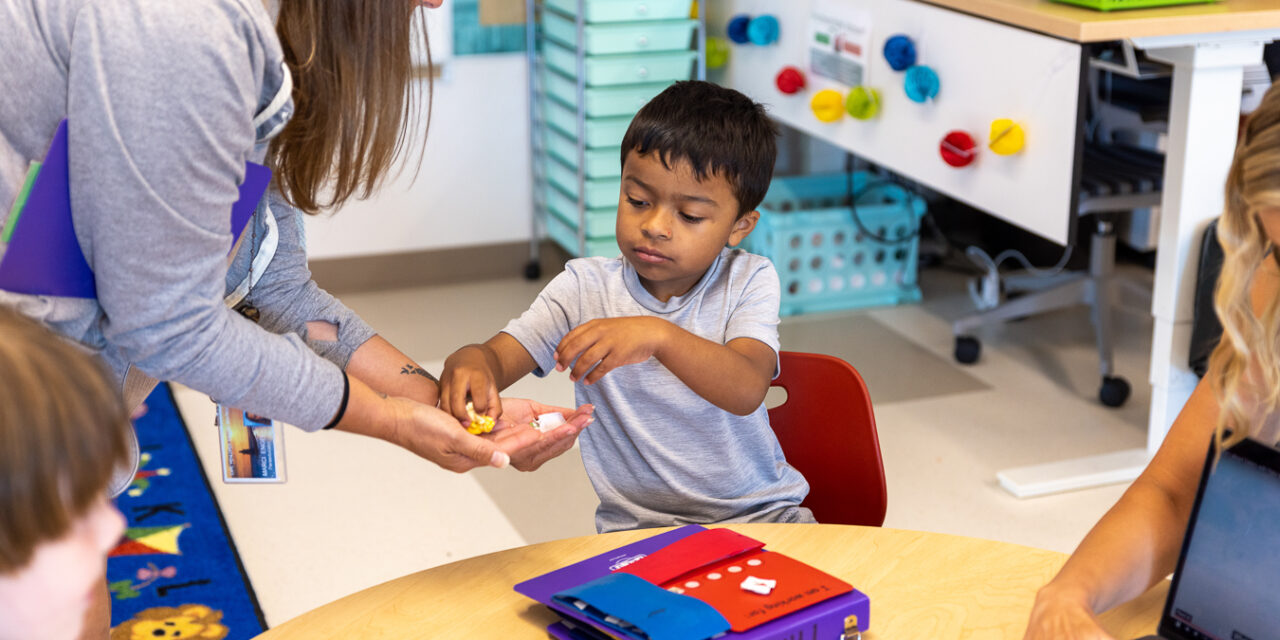
In August’s blog, we talked about finding reinforcers for our learners. This month, we continue with tips on the topic of reinforcement with ideas for reinforcer expansion. Preference assessments are an ongoing process, so we never stop looking for new reinforcers! Just like the salary we are willing to work for and the benefits package we’d most appreciate, our reinforcers change over time and so will our students’ reinforcers.
· As you explore possibilities, we joke that you need to think a bit like a good gift-giver. Some people will easily show or tell you what they’d like, but others you must get creative and think about what they’ve liked in the past. I had the privilege of working with a young man who liked to flick his fingers in front of his eyes, so when we explored plastic witches’ fingers, finger puppets, and light wands, he was very happy! Often for our learners, it can be helpful to think in terms of sensory things they enjoy and try other things from that same sensory category. This form may help you think of things to try.
· Remember that our interests evolve and develop over time! We can explore items and activities related to current reinforcers. Just because a learner does (or does not) like something now, doesn’t mean that is fixed in stone. For example, one young client initially showed interest in only one very specific type of pony related to a cartoon. Over time, she was introduced to realistic horse figurines and started enjoying those toys, as well. Next, she was motivated by unicorn-themed trinkets. Now, she enjoys bi-weekly trips to ride a real horse!
· Other ideas I’ve been using recently have come from Dr. Andy Bondy, the co-creator of PECS. He reminds us that our students often like COMBINATIONS of reinforcers joking, “Not very many people like jelly, 
· Dr. Bondy also got us thinking about the purpose of Art or Music Appreciation classes. I took art appreciation and never learned to paint or sculpt in the class. But, over time, I started to learn about the significance of the art I enjoyed. For some of our “toughest customers” with a limited repertoire of reinforcers, we might designate part of everyday as “reinforcer appreciation” time. During that time, we simply show the benefits of different potential reinforcers. In doing this, it has been fun to watch how over time, students DO start to enjoy things they did not appreciate at first!
One of the greatest parts of our jobs is getting to find things that bring our students joy. Then we get to see that joy multiplied over time, when these things help us teach new skills. Having new skills is something my students feel good about, and their new skills expose them to more possible reinforcers…it is a wonderful process!

Additional Support
Looking for upcoming workshops? Visit our training schedule! We recommend our PECS Level 1 Training where you can learn more about identifying reinforcers!
For ongoing support with communication skills, AAC implementation, the PECS protocol, and the Pyramid Approach, join our online community on Facebook. Search “PECS User Support” on Facebook and request to join. This active group of over 30,000 professionals, parents, and caregivers is monitored by our Pyramid Consultants from around the globe daily!
Written By Jaime Wedel, MEd, CAGS, BCBA
© Pyramid Educational Consultants, LLC. 2022

